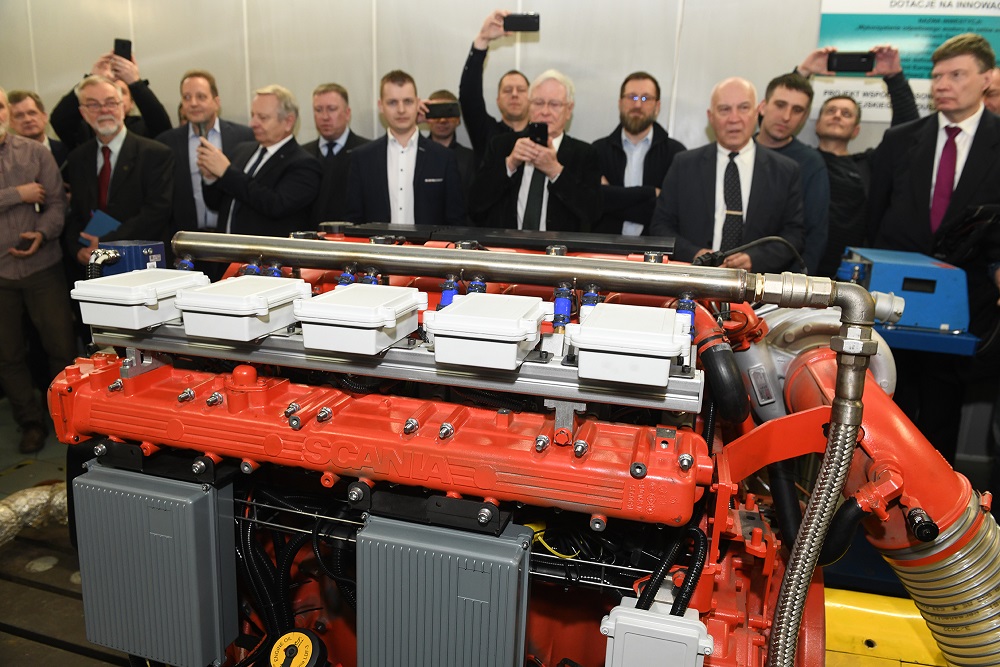Engineers from the Department of Motor Vehicles at the Krakow University of Technology have stood up to the world’s largest automotive corporations and adapted a piston internal combustion engine to run on hydrogen. For research purposes, the scientists adapted a 5-cylinder industrial Scania engine.
The use of hydrogen as a new energy carrier for transport is a very promising direction.
“This fuel is not geopolitically burdened, as hydrogen can be produced anywhere on the globe where there is access to water and electricity. If the production of hydrogen from renewable sources gets off to a full start, hydrogen can be used for reciprocating internal combustion engines during the transition period of automotive evolution”, says the head of the inventor team, Prof. Marek Brzeżański.
The biggest advantages are the benefits for human health and the environment – no toxic exhaust emissions and no carbon dioxide emissions. Another is that there is no problem of vehicle range when running on hydrogen and the operation does not burden the environment. Fuel cells can be used in wheeled vehicles, rail vehicles, maritime transport and to power construction machinery.
“In practice, this type of propulsion source, due to its rather complex design, should primarily be preferred for larger passenger vehicles and all types of commercial vehicles, rail vehicles and industrial machinery. There are still a lot of challenges ahead of scientists and designers in this area, but we are on the right path”, believes a researcher from the Krakow University of Technology.
Krakow scientists are conducting research into the use of hydrogen in multiple ways. In addition to adapting a piston internal combustion engine to this fuel, they are also collaborating with Toyota on work on hydrogen cells, as well as developing their own designs. Among others, the department has developed a single-cylinder engine with a novel system for direct injection of hydrogen into the combustion chamber.
Arkadiusz Słomczyński





